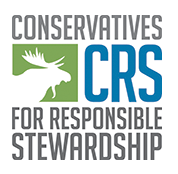Way back in 1987, President Ronald Reagan pushed through an international treaty to phase out the use of chlorofluorocarbons (CFCs), chemicals that scientists suspected of eroding the earth’s protective ozone layer. That treaty, called the Montreal Protocol, has been the most successful environmental treaty in history.
In fact, because of Reagan’s leadership, the ozone hole over Antarctica is healing. According to NASA, the hole should completely vanish in about 50 years.
Today, however, we now know that the chemicals developed to replace CFC-based refrigerants, hydrofluorocarbons (HFCs) harm the atmosphere in a different way. They are extremely potent greenhouse gases. The most commonly used HFC is 3,790 times more potent than carbon dioxide.
Back in December (2020), a funding bill passed by Congress included a bipartisan climate agreement to phase-down production and consumption of HFC super-pollutants. That legislation, which authorizes the Environmental Protection Agency (EPA) to slash HFC emissions, passed and was signed into law by then President Trump.
Now the Biden administration is following through on that. Its new EPA rule seeks to decrease U.S. production and use of HFCs by 85% over the next 15 years.
That is real progress, but HFCs and our warming climate are global problems, not simply something we can solve alone. Other countries must follow our lead—and that is where Reagan’s Montreal Protocol comes back into play.
Kigali Amendment
In 2016, the United States and other protocol signatories drafted and approved the Kigali Amendment. The Kigali Amendment is a global pact under the Montreal Protocol that focuses on the phase out of climate warming HFCs. The United States signed the amendment in 2016 but has yet to ratify.
The Biden administration must step up to the plate and send the Kigali Amendment to the Senate for ratification. Biden promised to send the Amendment to Capitol Hill, but he has yet to do so. If President Biden wants to prove how serious he is about climate change, he must act now on ratifying the Kigali Amendment.
When Reagan lead the way in passing the Montreal Protocol treaty, he knew that he was signaling U.S. companies to get a head start in producing the replacement for CFCs. We need that same kind of leadership today.
This is not a difficult call. Why hasn’t the president acted yet?
The U.S. Chamber of Commerce, the National Association of Manufacturers, Business Roundtable, and leading US air conditioning and refrigeration companies all strongly support U.S. ratification this amendment.
Instead of leading the world, Biden’s dillydallying on ratification has allowed China and India to jump ahead of us. Both countries ratified the Kigali Amendment earlier this year.
Acceptance and implementation of the Kigali Amendment alone can prevent up to one-half a degree Celsius of climate warming. That is one way we can tackle climate change the Reagan way—and build on his success with the Montreal Protocol treaty.
The choice to ratify the Kigali Amendment is a no brainer – President Biden must send the Kigali Amendment to the Montreal Protocol to Capitol Hill for ratification. Too much time has already been wasted.
“If we’ve learned any lessons during the past few decades, perhaps the most important is that preservation of our environment is not a partisan challenge; it’s common sense. Our physical health, our social happiness, and our economic well-being will be sustained only by all of us working in partnership as thoughtful, effective stewards of our natural resources.” – Ronald Reagan.


